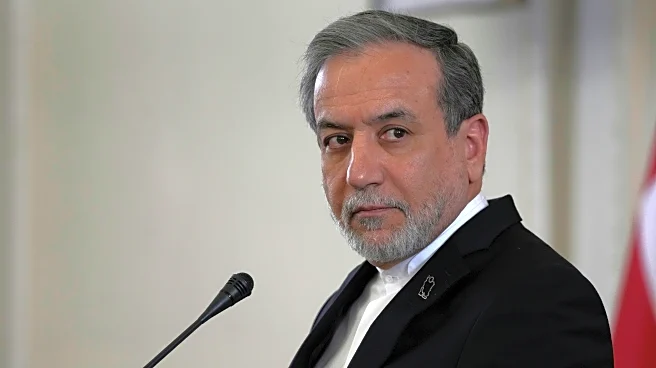What's Happening?
Charlie Kirk, a conservative activist, wrote a letter to Israeli Prime Minister Benjamin Netanyahu expressing his concerns about increasing anti-Israel sentiment among Gen Z in the United States. Kirk, who was assassinated earlier this year, emphasized his deep love for Israel and outlined strategies to counter negative perceptions. He suggested that Israel is losing the 'information war' and proposed several measures, including creating a rapid response team and promoting positive narratives about Israel on social media. Kirk's letter was mentioned by Netanyahu in a video address, disputing false claims about Israel's involvement in Kirk's death.
Why It's Important?
The letter highlights the challenges Israel faces in maintaining support among younger generations in the U.S., particularly in conservative circles. Kirk's suggestions aim to strengthen Israel's public image and counter misinformation, which could impact U.S.-Israel relations and influence American foreign policy. The strategies proposed by Kirk could help Israel regain support and ensure continued political and military backing from the U.S., which is crucial for its security and diplomatic efforts.
What's Next?
The next steps involve implementing Kirk's suggestions to improve Israel's communication strategies. This includes building a rapid response team and engaging with social media to address misinformation. The outcome of these efforts could affect Israel's standing in the U.S. and its ability to garner support from American policymakers and the public. Additionally, the legal proceedings against Kirk's accused assassin, Tyler Robinson, are ongoing, with a preliminary hearing scheduled for October 30.
Beyond the Headlines
Kirk's letter underscores the importance of effective communication in international relations and the role of public perception in shaping foreign policy. The ethical and cultural dimensions of defending Israel in the U.S. involve navigating complex narratives and addressing deeply rooted biases. The long-term implications could include shifts in how Israel engages with global audiences and adapts to changing political landscapes.










